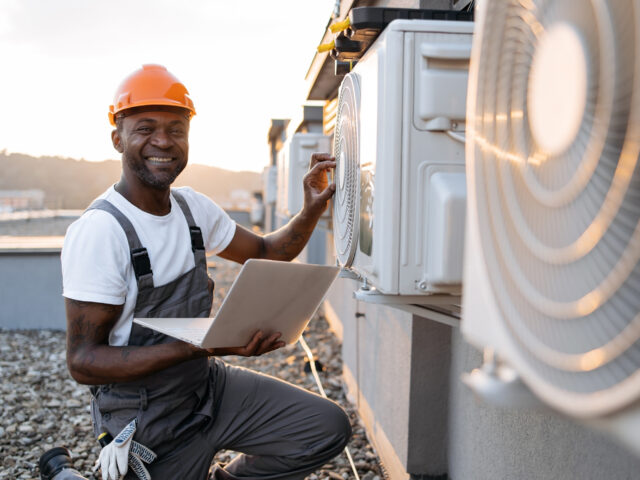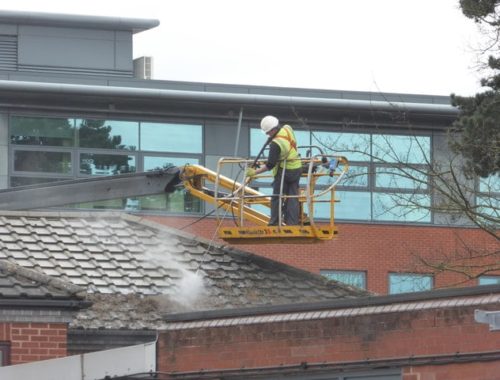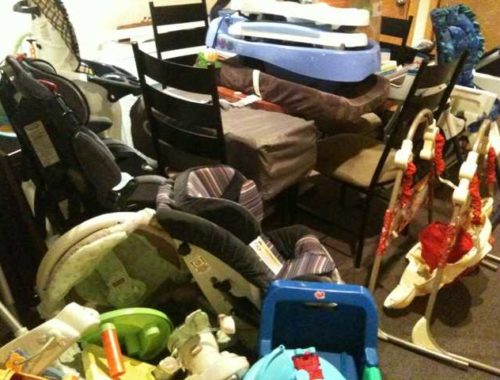
Is Your AC Unit Leaking Water?
Air conditioning units are essential appliances in many homes, especially during the hot summer months. They keep your living spaces cool and comfortable, but when your AC starts leaking water, it can be a cause for concern. Water leakage around your AC unit can signal a variety of issues, from simple maintenance needs to more serious mechanical problems. If you’re noticing water pooling around your air conditioner, it’s important to address the issue quickly to prevent damage to your home and ensure your AC continues to function efficiently.
In this blog post, we’ll explore some common reasons why an AC unit may leak water, what you can do to fix it, and when it’s time to call in a professional.
Why Is My AC Leaking Water?
Air conditioners are designed to remove humidity from the air as they cool it. This process causes condensation to form on the evaporator coils inside the unit. The moisture is then collected and funneled into a drainage system that typically leads to a drain pan and out of the unit. However, when this system malfunctions or becomes obstructed, water can leak from the unit and pool around your AC.
Here are the most common reasons why your AC may be leaking water:
1. Clogged Condensate Drain Line
One of the most common causes of AC water leakage is a clogged condensate drain line. The condensate drain is responsible for removing the moisture that forms on the evaporator coils during the cooling process. Over time, algae, dirt, or debris can accumulate in the drain line, causing a blockage. When the drain line becomes clogged, water can back up into the AC unit and overflow, leading to leakage.
How to fix it:
You can try clearing the clog yourself by using a wet/dry vacuum to suck the debris out of the drain line. Alternatively, you can pour a mixture of bleach and water down the drain to help break up algae and mold. If the clog persists, you may need to call a professional HVAC technician to inspect and clear the drain line.
2. Frozen Evaporator Coils
If your evaporator coils freeze up, they can cause a significant water leak when they thaw. This is because the ice on the coils melts and drips down onto the unit’s surface, overflowing the pan designed to catch the water. Frozen evaporator coils can occur due to poor airflow, low refrigerant levels, or a dirty air filter, among other reasons.
How to fix it:
If you notice ice building up on the coils, turn off your AC and allow the unit to thaw completely. While the unit is off, check the air filter and replace it if it’s dirty. Also, inspect the return vents to ensure they’re not blocked, which can restrict airflow. If low refrigerant is the cause, you’ll need to have a technician recharge the system.
3. Low Refrigerant Levels
Refrigerant is a key component of the cooling process. When the refrigerant level is low, the evaporator coils can freeze over, and as the ice melts, it may cause water to leak. Low refrigerant levels usually indicate a leak somewhere in the system, and it’s essential to get it repaired to prevent further damage.
How to fix it:
If you suspect low refrigerant levels, you’ll need a licensed HVAC technician to inspect the system, identify the leak, and refill the refrigerant. Refrigerant is not something that homeowners should handle themselves, as improper handling can be hazardous to both you and the environment.
4. Dirty or Clogged Air Filters
Air filters play an important role in your AC system by trapping dust, dirt, and other particles from the air. Over time, however, they can become clogged and restrict airflow to the evaporator coils. When airflow is insufficient, the coils can freeze, and as they thaw, the resulting water can overflow and leak out of the unit.
How to fix it:
Regularly replacing or cleaning your air filters is one of the easiest ways to prevent AC water leakage. Most air filters should be replaced every 1–3 months, depending on your system and usage. You can also clean washable filters with warm, soapy water to keep them in good working condition.

5. Broken Pump or Malfunctioning Drain Pan
The drain pan beneath the evaporator coils collects the water that condenses on the coils. In some AC units, a pump is used to push the water out of the pan and through the drain line. If the pump malfunctions or the pan becomes damaged, water may spill over and leak from the unit.
How to fix it:
If the drain pan is cracked or the pump is broken, you’ll need to have them replaced by a professional. An HVAC technician can inspect the system and determine if the pan needs to be repaired or replaced, or if the pump is malfunctioning and needs a fix.
6. Improper Installation or Leveling
In some cases, water leakage may be caused by an installation issue. If the AC unit is not installed properly or is not level, water may not flow correctly into the drain pan. Instead, it may spill over and leak onto the floor.
How to fix it:
If you suspect an installation problem, it’s best to have an HVAC technician assess the unit’s placement. They can make sure the unit is properly leveled and ensure the drainage system is working as it should.
What Should You Do If Your AC Is Leaking Water?
If you notice water leaking from your air conditioning unit, it’s important to act quickly to avoid damage to your home or the AC unit itself. Here’s what you should do:
- Turn Off the AC: If water is leaking from your AC, the first step is to turn off the system. This will help prevent any further water damage to your floors or walls and allow you to assess the situation.
- Inspect the Drain Line: If you’re comfortable, you can inspect the condensate drain line for any visible blockages or debris. Use a wet/dry vacuum or pour water down the drain to see if it clears the line.
- Check the Air Filter: A dirty air filter can cause airflow issues and lead to frozen coils. Check the filter and replace it if necessary.
- Call a Professional: If you’re unable to identify or fix the problem on your own, it’s time to call an HVAC technician. They can diagnose the issue, whether it’s a clogged drain, a frozen coil, or a refrigerant leak, and get your AC back to working properly.
Conclusion
Water leakage from your AC unit is a sign that something is wrong, but it’s often a problem that can be resolved with proper maintenance or repairs. Regularly cleaning the air filter, inspecting the condensate drain line, and addressing any issues with low refrigerant or frozen coils will help keep your AC running smoothly. If you’re unable to resolve the problem yourself, don’t hesitate to call a professional HVAC technician to ensure your unit is repaired correctly and efficiently.
By staying proactive with AC maintenance, you can avoid water leaks and keep your home cool and comfortable all summer long. One effective way to ensure your system is running smoothly is by scheduling regular Yishun aircon servicing. This professional maintenance service can help detect and fix potential issues early, preventing costly repairs and ensuring your air conditioner operates efficiently throughout the hot months.
You May Also Like

Roofing Contractors – How To Find
July 1, 2020
Basic Baby Essentials You Must Have
February 1, 2020


